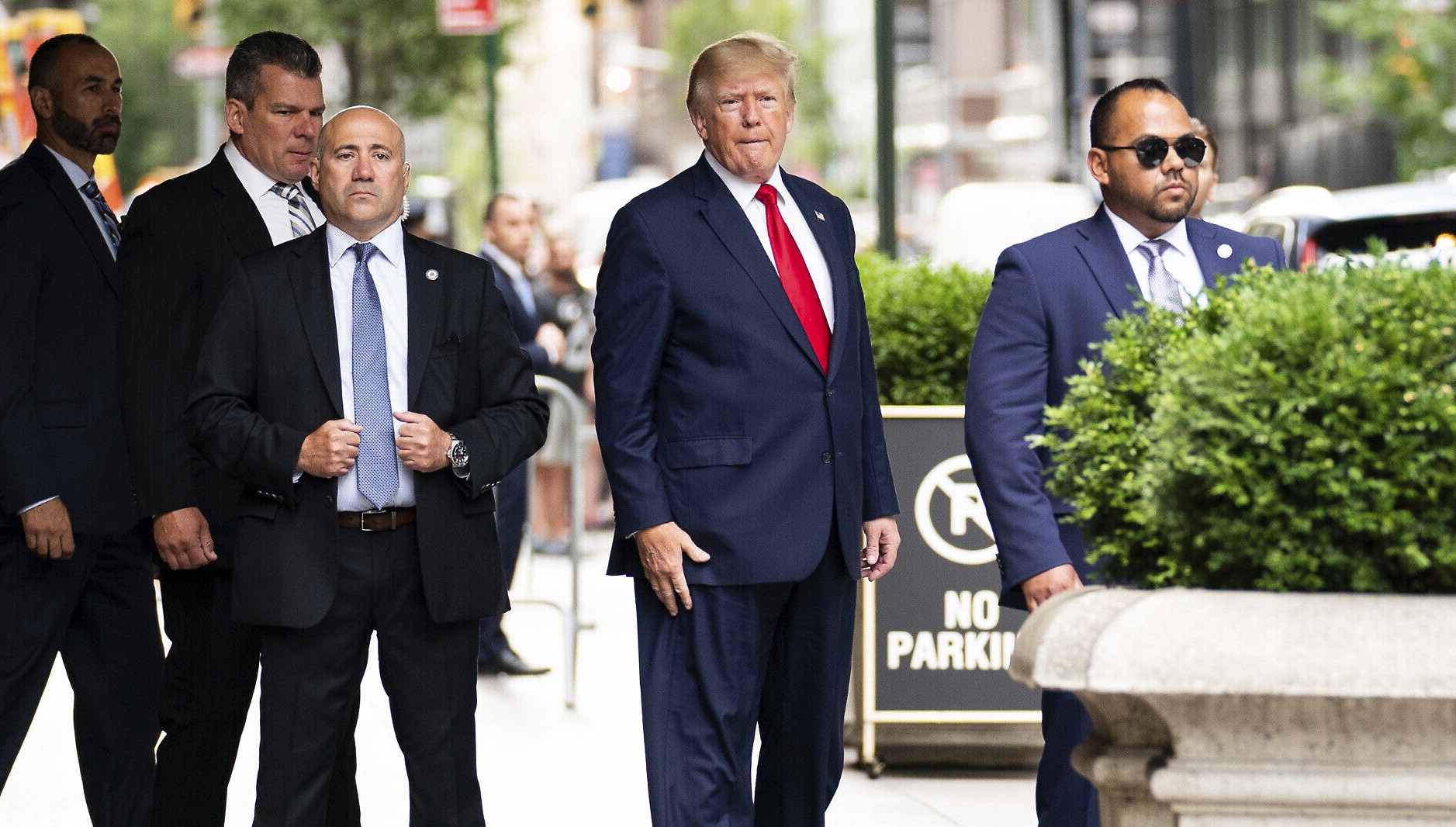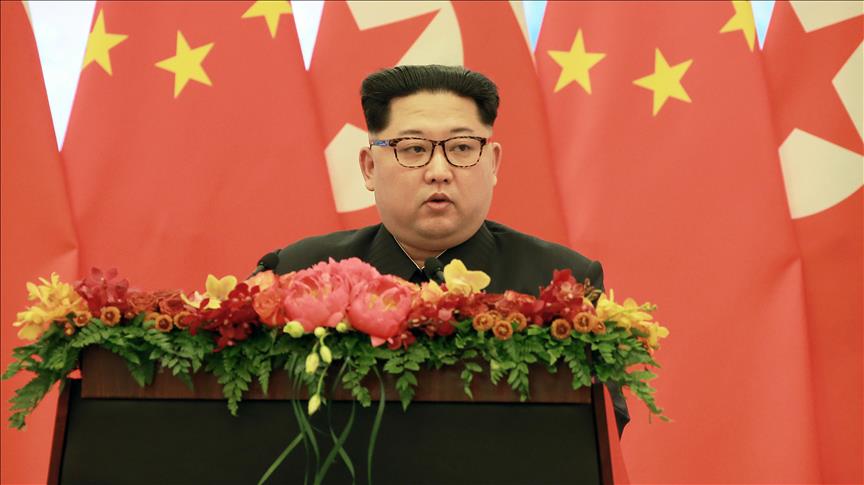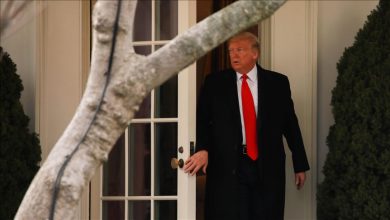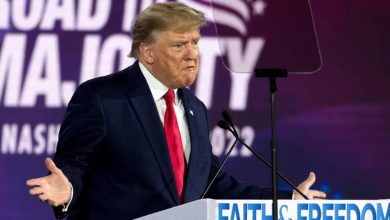Trump Organization found guilty of tax fraud
A company owned by former US President Donald Trump has been found guilty on all counts. It was also about tax evasion.

Former US President Donald Trump’s real estate company has been found guilty of tax fraud in a lawsuit in New York. After about two days of deliberations, a jury found the company guilty on all 17 counts, according to Manhattan Attorney Alvin Bragg. The sentence is to be announced on January 13, 2023. Ex-President Trump was not personally accused.
In addition to the Trump Organization and another co-defendant Trump company, the company’s longtime chief financial officer Allen Weisselberg, who had pleaded guilty, was charged. In his testimony, he admitted that he and other employees had systematically cheated the tax authorities for years. Benefits such as luxury cars and expensive apartments were not taxed.
The 75-year-old escaped a possible prison sentence of up to 15 years. Instead, he had to pay a total of almost two million US dollars in taxes and fines due and received five months in prison and five additional years of probation.
Trump Organization Found Guilty of All Tax Fraud Charges Against It
A jury found two Trump Organization companies guilty of multiple counts of tax fraud and falsifying business records related to a 15-year scheme to defraud tax authorities by failing to report and pay taxes on the compensation of senior citizens. executives.
Trump Corp. and Trump Payroll Corp. were found guilty of all charges they faced.
Donald Trump and his family were not charged in this case. However, prosecutors repeatedly mentioned during the trial the former president’s connection to benefits granted to certain executives, including company-financed apartments, car leases and personal expenses.
The Trump Organization could face up to $1.61 million in fines when judgment is handed down in mid-January. Now, the company is not at risk of being dismantled because there is no mechanism under New York law to dissolve the company. However, a felony conviction could affect your ability to do business or obtain loans or contracts.
The guilty verdict comes as Trump faces scrutiny from federal and state prosecutors over his handling of classified documents, the effort to overturn the 2020 election results and the accuracy of the Trump Organization’s business records and financial statements. He also faces a $250 million civil lawsuit from the New York attorney general accusing him and his adult children of being involved in a decade-long fraud. The attorney general seeks to permanently bar them from serving as officers or directors of a company in the state of New York, among other sanctions.
“This was a case of greed and cheating,” said Manhattan District Attorney Alvin Bragg. “Trump Corporation and Trump Payroll Corporation got away with a scheme that gave high-level executives lavish benefits and compensation while intentionally concealed profits from tax authorities to avoid paying taxes.Today’s verdict holds these Trump companies accountable for their long-running criminal scheme.”
CNN legal analyst and former federal prosecutor Elie Honig said Bragg’s approach was vindicated.
“Obviously, this is a setback for the Trump Organization, a huge setback for the Trump Organization. Now they have been found guilty of criminal conduct, tax fraud,” Honig told CNN’s Victor Blackwell on “Newsroom.”
“It’s also kind of a victory for the Manhattan district attorney,” Honig said. “His theory of his, now, that part of the income of employees, including Allen Weisselberg, was paid through fringe benefits to avoid tax liability, that theory has been vindicated.”
Prosecutor Joshua Steinglass told jurors in closing arguments that Trump “explicitly sanctioned” the tax fraud and urged them to reject the defense’s argument that former Trump Organization CFO Allen Weisselberg was a rogue employee motivated by his own personal greed.
“This whole narrative that Donald Trump was blissfully ignoring it is just not true,” Steinglass said.
The jury heard that Trump agreed on a whim to pay Weisselberg’s grandchildren’s private school tuition and signed a lease on a Manhattan apartment to reduce commuting for the executive. Trump personally signed his employees’ Christmas bonus checks and initialed him on a memo cutting the pay of other top executives, which prosecutors say suggested he knew about the scheme all along. fraudulent.
Prosecutors alleged that for years top executives reduced their reported salaries by the amount of fringe benefits the company issued to avoid paying required taxes.
The conviction, after the week-long trial, represents a victory for the Manhattan district attorney’s office led by Alvin Bragg, who based his case on the Trump Corporation’s general ledger, tax records and Weisselberg’s testimony.
Weisselberg, que está en una licencia remunerada de la empresa, pasó tres días en el estrado de los testigos. Se declaró culpable de 15 delitos graves por no pagar impuestos sobre US$ 1,76 millones en ingresos. Como parte de su acuerdo de culpabilidad, será sentenciado a cinco meses de cárcel si el juez determina que testificó con sinceridad.
En su testimonio, Weisselberg admitió que debería haber pagado impuestos sobre la compensación, por un total de aproximadamente US$ 200.000 en un año, que incluían un apartamento de lujo en Manhattan con vista al río Hudson, dos autos Mercedes Benz, estacionamiento, servicios públicos, muebles y matrícula de escuela privada para sus nietos. También testificó que se pagó a sí mismo y a otros ejecutivos como si fueran consultores independientes, lo que permitió a las empresas de Trump evadir el pago de impuestos.
Weisselberg testificó que logró el esquema con la ayuda de su subordinado, el interventor de la Organización Trump, Jeffrey McConney. McConney, quien recibió inmunidad por testificar ante un jurado investigador, admitió parte de la conducta ilícita en su testimonio.
Después de que a Trump lo eligieran presidente, testificó Weisselberg, hubo una “limpieza” y muchas de las prácticas ilegales cesaron.
Reveló conversaciones que tuvo con Trump, Eric Trump y Donald Trump Jr., pero ante el jurado señaló que él no planeó ni conspiró con nadie en la familia Trump, cuando los abogados del expresidente lo interrogaron.
Weisselberg se mostró emotivo en algunas ocasiones y le dijo al jurado que estaba “avergonzado” por su conducta y que “traicionó” a la familia Trump, quien ha sido su empleador durante 49 años.
Los fiscales y los abogados defensores apuntaron a las lealtades divididas de Weisselberg: querer respetar su acuerdo de culpabilidad y cumplir una sentencia de cárcel más baja, así como su lealtad a la familia Trump, que podría pagarle US$ 1 millón en compensación este año.
To prove the company’s guilt, prosecutors had to show that Weisselberg or McConney was a “senior management agent” who committed the crimes in the scope of their employment and “on behalf of” the company.
Prosecutors and defense attorneys argued in circles about what “on behalf of” meant.
Judge Juan Merchan also had a hard time explaining the phrase to the jury and turned to two legal treatises to come up with a definition.
The judge explained this to the jury and said: “Under the definition of ‘in the name of’ it is not necessary that the criminal acts actually benefit the corporation. But the acts of an agent are not “on behalf of” a corporation if they were carried out solely to further the agents’ own interest. Put another way, if the agent’s acts were taken simply for personal gain, they were not ‘on behalf of’ the corporation.”
Weisselberg walked a fine line in his testimony, telling jurors that he never wanted to affect the company, that he was driven by greed and primarily wanted to pay less in taxes. But, he also said, he knew at the time that the company would benefit to some degree from his schemes.
In testimony from him, Weisselberg said: “It was a benefit for the company, but it was mainly due to my greed.” He told jurors that the company saved money by paying less tax on its off-books compensation and acknowledged when asked by prosecutor Susan Hoffinger whether, while his primary goal was to avoid tax, he also created a benefit for the company. .
“To some extent, yes,” Weisselberg testified.
Weisselberg said he and McConney knew at the time that the company would pay less payroll tax through the scheme, though he said they never explicitly discussed it.
Trump’s lawyers repeatedly argued before the jury that “Weisselberg did it for Weisselberg” to emphasize that he was motivated solely by his personal greed.
On cross-examination, Weisselberg agreed that the decision not to pay taxes was his and made solely for his own benefit.
“That was my intent,” Weisselberg said when asked by Trump’s lawyers, “to benefit myself.”
Lawyers for the Trump entities called only one fact witness, longtime real estate accountant Donald Bender of Mazars USA, who dropped Trump as a client earlier this year.
Trump’s lawyers said Bender knew about the off-the-record kickoff or should have discovered the tax fraud and accused him of lying on the stand.
When he was questioned by prosecutors, Bender testified that he trusted and depended on Weisselberg, who testified that he covered up the illegal plan.
Steinglass, the prosecutor, told the jury that Trump’s companies were guilty, and that the illegal scheme was concocted “so that employees can get a higher take-home pay while costing Trump Corporation less. It’s a win-win situation, unless it’s the tax authorities.”




